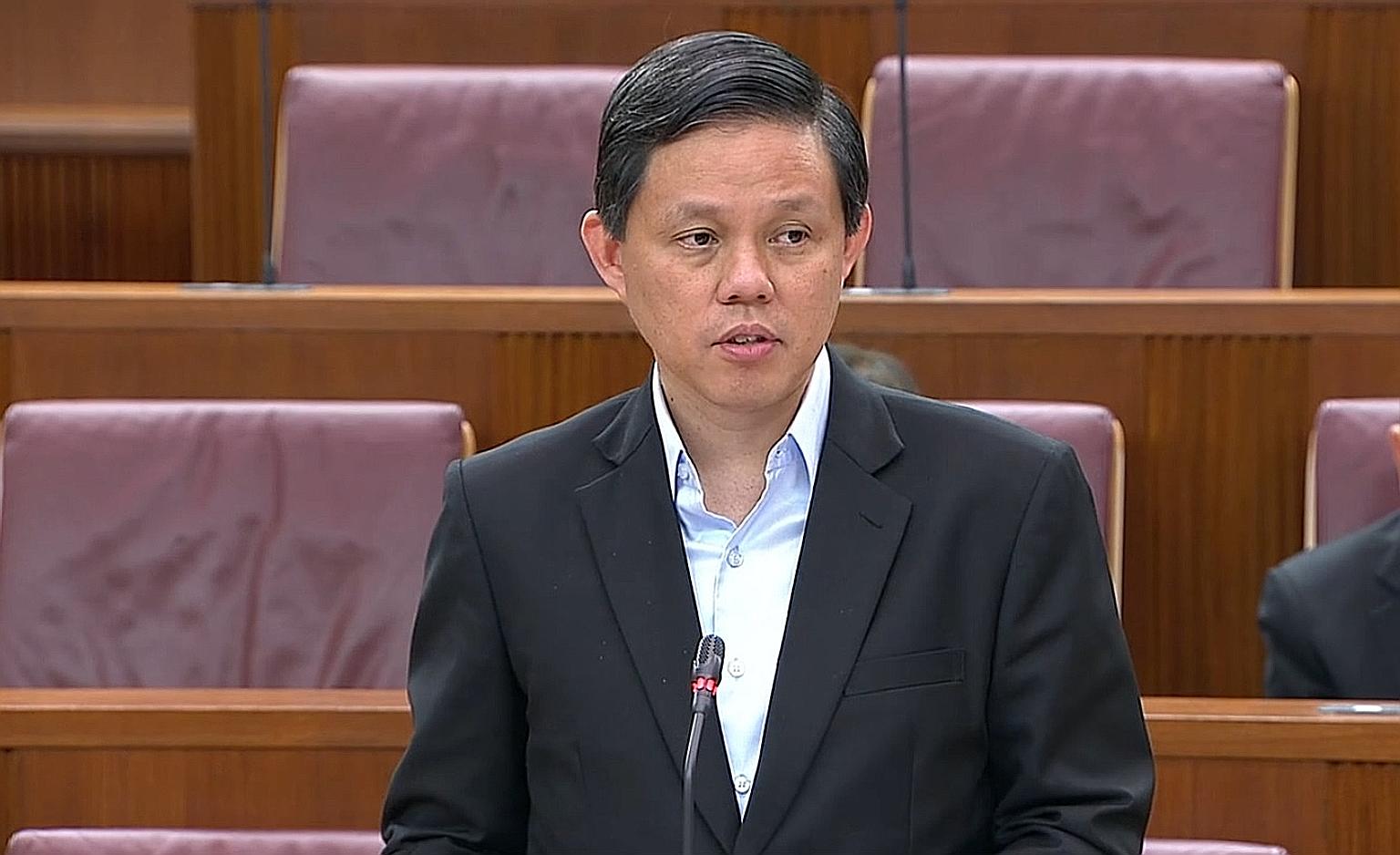Debate on ministries' budgets
Parliament: Series of targets fixed to ensure completion of RCEP talks in 2019
Ministers of Asean and key partners have reaffirmed resolve, says Chan Chun Sing
Sign up now: Get ST's newsletters delivered to your inbox

TRADE AND INDUSTRY MINISTER CHAN CHUN SING.
Commerce ministers of Asean and its key partners have agreed on a series of monthly targets to ensure that talks on the Regional Comprehensive Economic Partnership (RCEP) cross the finish line this year.
Trade and Industry Minister Chan Chun Sing outlined the developments when he updated the House yesterday about progress on the mega trade pact.
He had just returned from Cambodia where he and other ministers from Asean's 10 member states and six key partners - Australia, China, India, Japan, South Korea and New Zealand - held talks on the deal.
The RCEP covers issues such as trade in goods and services, investment as well as intellectual property, among others.
Mr Chan told Parliament in response to a question from Mr Liang Eng Hwa (Holland-Bukit Timah GRC) that the parties reaffirmed their determination to end the negotiations by the end of this year.
"In a world where we see the rise of protectionism, unilateral moves by various countries, trade protectionism and so forth, I think many in South-east Asia, in the rest of Asia, see the urgency to try to conclude this," he noted.
He added that this is not just for economic benefits, but to send a message that these nations believe in greater integration.
But the move comes amid uncertainties such as elections in four RCEP countries - India, Indonesia, Thailand and Australia.
Mr Chan noted that these nations will be very involved in domestic politics until late May, but ministers have directed negotiators to focus on settling as many technical issues as possible in this half of the year.
An August meeting in China will be a critical milestone as this is when political commitment will be shown on whether all 16 countries want to conclude the deal this year.
Mr Chan also gave an overview of how the Ministry of Trade and Industry (MTI) is preparing Singapore for its next stage of growth.
He noted that there are plans to upgrade trade pacts to secure better access to overseas markets for companies and people, and to cater to new business models.
The network of free-trade agreements (FTAs) will be expanded as well to give firms "privileged access to more markets", said Mr Chan.
"We are also... looking into FTAs with the Eurasian Economic Union, the Pacific Alliance and the Southern Common Market in South America (Mercosur)."
Singapore's trade with its FTA partners accounts for 92 per cent of its total trade in goods and services, Mr Chan said in response to Mr Teo Ser Luck (Pasir Ris-Punggol GRC), who asked how businesses have benefited from the pacts.
Companies here also had tariff savings of about $730 million in 2016, up from $450 million a decade before, he added, noting that such savings are a key benefit of FTAs.
The MTI's strategy also includes transforming industries to seize new opportunities, bolstering capabilities of firms and workers, and enabling more agile regulations.
Mr Chan also outlined challenges and trends to watch, including uncertainties in United States-China trade ties in the near term, shifts in global trade patterns in the medium term and developments in international taxation in the longer term.
But there remain reasons to be optimistic: "If we get our fundamentals right, we can further distinguish ourselves and attract global investors to come here and create better jobs for Singaporeans."
These must include effective governance founded on long-term political stability and planning, competitive advantage in innovation and a skilled workforce, he said.


